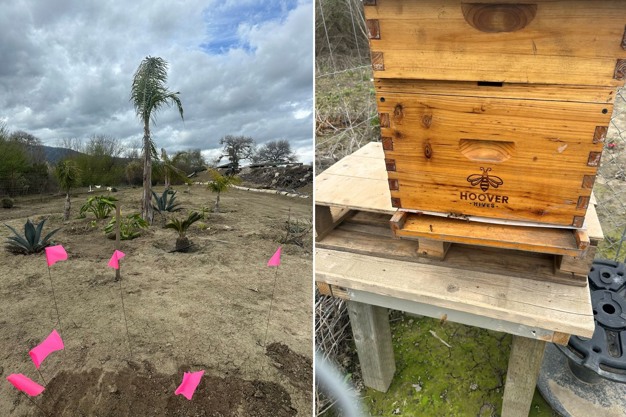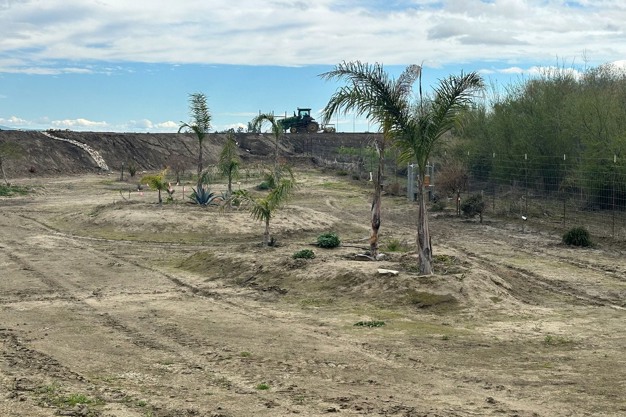US bee populations have steadily declined in recent decades, which is a big concern given their importance. In the US, honeybees pollinate about $15 billion in agricultural products each year, including more than 130 types of fruits, vegetables, and nuts. Pollinators in general add up to $200 billion annually in ecological services, including producing food for wildlife, maintaining soil health, and keeping water clean.
It's about three years ago that a team member of Nature's Reward in California was on a vineyard tour and got introduced to a natural bee habitat. "I saw it and got really inspired," says Mark Mason with Nature's Reward. "I felt that was something we needed to do on our farm to support the bees and support the environment."
The idea was born, but it took some time to find the right location. "We found a native vegetation site around the farm and close to the river. The location required some clean up, so it took a while to develop, but we started building out the natural bee habitat about a year ago," Mason said.
While Nature's Reward doesn't grow any crops that require pollination, the company wants to support the bee population. "We started out with one beehive and will continue to expand. The beehive has already increased in size and we're seeing a lot of bee activity." In the past, there were no bees around the river, but now there are. The company is hopeful their efforts will contribute to the recovery of the bee population.

Employees
An additional benefit is that Nature's Reward is working on turning the natural bee habitat into a quiet spot for employees. Mason has been working with the HR team on turning the habitat into a space where employees can have lunch or enjoy some quiet time. "We planted fruit trees and added some tables. It's nice to see the space turning into more than a bee habitat."

 For more information:
For more information:
Mark Mason
Nature's Reward
[email protected]
www.naturesreward.com










